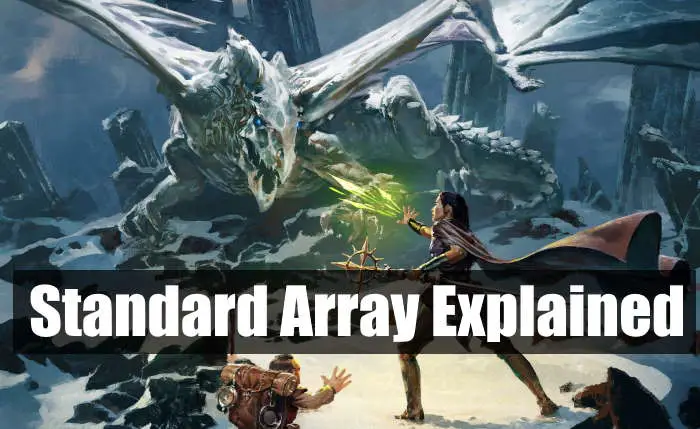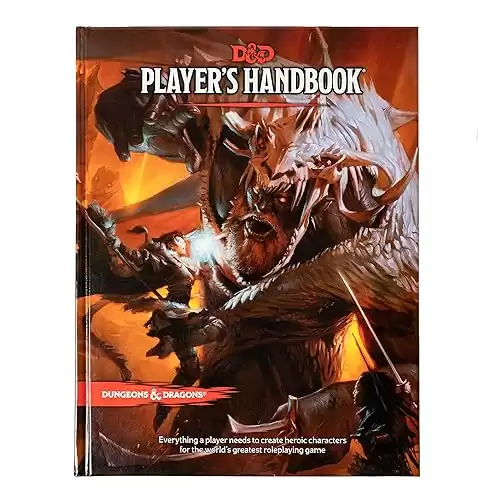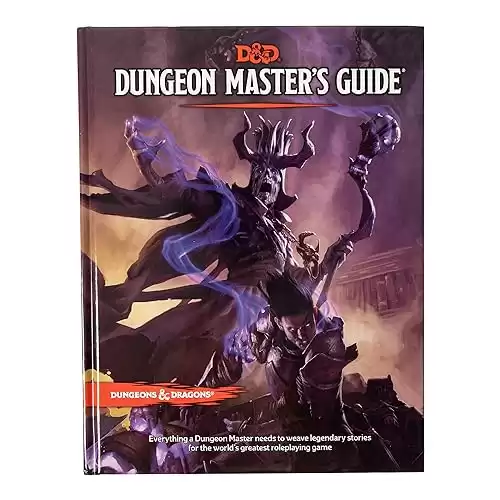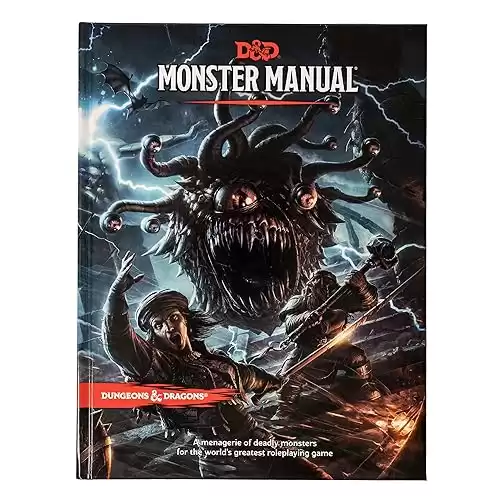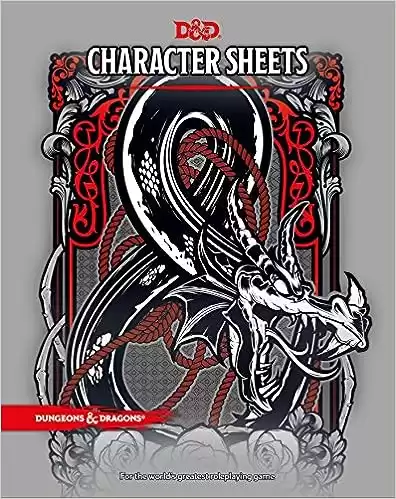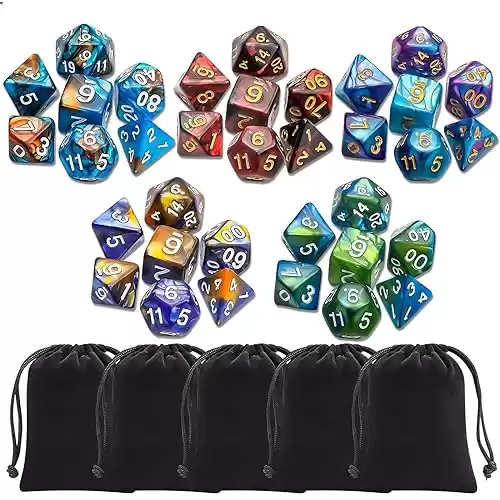Building a DnD character can be an exciting yet overwhelming process. You have a ton of decisions to make, and one of the most important is choosing your character’s ability scores. Your ability scores will determine how you fight and solve problems throughout the entire campaign, and the easiest way to get these scores in 5e is through Standard Array.
In 5e, players can choose to start with a Standard Array of ability scores: 15, 14, 13, 12, 10, and 8. There are other ways to generate ability scores, such as rolling for them using d6s, but Standard Array is the fastest and most balanced method.
If everyone in your campaign uses Standard Array, no character will be significantly stronger than the others, and assigning these numbers to your ability scores is very quick. However, some players enjoy more varied and powerful stats than Standard Array provides.
If you have questions about how to get the most out of this method, you’re in luck! We’ll go through how to use Standard Array for each class in 5e, as well as the pros and cons of using it at all.
What is Standard Array in 5e?
Standard Array is a list of set numbers that you can use for your starting ability scores: 15, 14, 13, 12, 10, and 8. You can assign these numbers to any ability scores you want, so you still have some flexibility with this system.
How Does It Work?
During character creation, you need to give your character their starting ability scores. If you use Standard Array, the process is very simple: you just assign each score a different number from the list.
There are six ability scores in DnD 5e:
- Strength
- Dexterity
- Consititution
- Intelligence
- Wisdom
- Charisma
Which scores you prioritize will determine a lot about your character. Not only do they affect the mechanics of the game, but they also can inform your role-playing decisions. After all, these scores represent your character’s physical and mental traits. If you’re unsure about your character’s personality, or how they might want to solve a problem, their ability scores can be a good place for inspiration.
In terms of mechanics, your ability scores are key to just about every aspect of the game. Based on how high your scores are, you get to add a higher (or lower) modifier to attack rolls, skill checks, and saving throws. Let’s take a look at what ability modifiers you get from Standard Array.
| Ability Score | Ability Modifier |
| 15 | +2 |
| 14 | +2 |
| 13 | +1 |
| 12 | +1 |
| 10 | 0 |
| 8 | -1 |
None of these scores are particularly high or low, but there’s enough variety to give your character some clear strengths and weaknesses. Where you assign each number will depend on your race, class, and character concept.
Pros
The best reason to use Standard Array is if you want something quick and simple. This method doesn’t have any extra steps or decisions in generating your ability scores, so you can go straight to building your character. For new players, this is a great way to get started without feeling overwhelmed.
This is also a very fair method for creating characters. If you roll dice to generate ability scores, some characters might just have better stats than others. It can feel bad to have the lowest stats in the party, or frustrating for everyone else if one player is overpowered.
Personally, I don’t think most groups need to start at an even playing field. As long as everyone gives the other players a chance to shine, higher ability scores shouldn’t be an issue. Randomly rolling a d20 for every attack and skill check already creates lots of variance, so underpowered characters will still be able to contribute ad succeed.
| Pros |
| Easiest method |
| Equal starting place |
| Great option for new players |
Cons
Of course, there’s no way to generate ability scores that will work for every group. Standard Array has its benefits, but it certainly has its drawbacks as well.
First, experienced players don’t typically need the fastest method. In fact, they’re likely so familiar with the game that they can quickly make a character regardless of how they get their ability scores.
Experienced players may also find Standard Array to be too boring and restrictive. The numbers never change, and there aren’t many big decisions to make. You’ll likely put your +2s in the scores your class relies on, put your -1 in a score you’re unlikely to use, and fill out the rest with average numbers. This method isn’t too interesting when you’re familiar with the game.
Lastly, some players prefer having more extreme stats than Standard Array allows. It’s impossible to get a +4 with this method, and many players love excelling at their best traits right away. You also can’t have a stat lower than a -1. This sounds like a good thing, but some players enjoy having clear weaknesses to use during role-playing.
Personally, I’d always take a +4 and a -2 (or lower) if I had the option. I love starting with a great number for my key abilities, but I also like having clear weaknesses. Not only do can they provide interesting or funny role-playing decisions, but they also naturally make me rely on the rest of the party.
| Cons |
| Can be boring |
| Doesn’t allow for extreme scores |
| Not the best for experienced players |
What are the Best Ability Scores in 5e?
Every class uses different ability scores, so which stats you prioritize will change depending on your class. There are some abilities, however, that every character will use throughout a campaign. If you aren’t sure where to put some of your best numbers, some options are generally better for having a well-rounded character.
The most important ability score in 5e is Dexterity. Your initiative, stealth, and ranged attacks all depend on this ability. Dexterity saving throws are also quite common, with many AoE spells like Fireball or Lightning Bolt requiring a Dex save. Having even a +1 to this ability can give you lots of utility throughout a campaign.
Next, Consititution and Wisdom are also important abilities. Saving throws using these ability scores are also quite common, so it can’t hurt to have a decent score for them. Each score also affects many key skills and stats for any PC.
Your Con modifier is added to your HP at every level, so having a poor Consititution can leave you vulnerable in combat. Spellcasters also use it for concentration checks to keep their spells in effect. Wisdom, on the other hand, affects some of the most commonly used skills in DnD, such as Insight and Perception.
You don’t have to have a good score for any of these abilities, though. If you think your character would have poor reflexes, feel free to use Dexterity as a dump stat. To make my later recommendations as useful as possible, however, I’ll be prioritizing these three more often for every class.
How Does Race Affect Standard Array in 5e?
Below are my general recommendations for using Standard Array, but you might change how you assign these numbers based on your character’s race. Each race gives you bonuses to different ability scores, and that could easily change how you build your character.
It’s important to note that even numbers are better than odd numbers for ability scores. This is because each score’s modifier increases with every even number, but stays the same with the following odd number.
| Ability Score | Ability Modifier |
| 20 | +5 |
| 19 | +4 |
| 18 | +4 |
| 17 | +3 |
| 16 | +3 |
| 15 | +2 |
| 14 | +2 |
| 13 | +1 |
| 12 | +1 |
| 11 | 0 |
| 10 | 0 |
| 9 | -1 |
| 8 | -1 |
| 7 | -2 |
| 6 | -2 |
| 5 | -3 |
| 4 | -3 |
| 3 | -4 |
| 2 | -4 |
| 1 | -5 |
Let’s assume that you’re playing a Wood Elf ranger. Dexterity is your most important ability score, so you might want to put your 15 there. However, Wisdom is another key ability for rangers, and you can start with a +3 to both. Wood Elves get a +2 to Dex and a +1 to Wis, so you could put your 14 into Dex and your 15 into Wis. This way, you start with a 16 in both abilities!
When you’re building your character, think about how their racial bonuses will affect their ability scores. If you can start with more even numbers, your character will have a stronger start.
If you have to have odd numbers, it’s best to have them in pairs. That way, you can give them each a +1 with an Ability Score Improvement, bumping them both up at once.
Suggested Standard Array by Class
Now that you know how Standard Array works and why you might use it, let’s go over how each class can get the most out of this system.
Artificer
This is the only class in 5e that didn’t originally come in the Player’s Handbook, and they rely a lot more on technology and items than any other class. They don’t have as many spells as some other spellcasters, but they’ll still lean on their magic in a lot of situations.
Str: 10 Dex: 12 Con: 14 Int: 15 Wis: 13 Cha: 8
No matter which subclass or playstyle you choose, Intelligence will be your most important ability score. It’s your spellcasting ability, and many of your class’s features use Intelligence.
Every spellcaster will have to make a concentration check at some point in a campaign, and a high Constitution makes it more likely that you’ll succeed. In addition, some artificers can get involved in melee combat, especially if they’re armorers or battle smiths. A good Con score will give you more HP, allowing you take more hits before you have to retreat.
Barbarian
Barbarians want to get into melee and deal a ton of damage, plain and simple. They’re also a pretty tanky class, so they want to have high HP and good defenses. Here’s my recommendation for DnD’s most reckless class:
Str: 15 Dex: 13 Con: 14 Int: 8 Wis: 12 Cha: 10
Since barbarians use melee weapons, a high Strength score lets you hit more often and do more damage. After that, Consititution and Dexterity are key for the barbarians Unarmored Defense feature. Keeping these stats high will improve your defenses and let you stay in the fight.
RELATED: DnD Weapons: A Complete Guide
Bard
Bards are primarily spellcasters, but they’re also able to mix it up in combat with weapons. They’re also generally seen as social characters since they’re often entertainers or artists.
Str: 8 Dex: 14 Con: 10 Int: 12 Wis: 13 Cha: 15
Charisma is your spellcasting ability, so it’s definitely your most important score. A high Charisma will also let you serve as the face of the party, using your silver tongue to open doors and get out of sticky situations.
A good Dexterity is also great for bards, especially if you want to choose one of the combat-focused subclasses. You can use Dexterity for both ranged weapons and finesse melee weapons, giving you lots of options for darting in and out of battle.
Cleric
Clerics are the go-to support class in DnD. They have some great offensive options, but they’re also one of the best classes for healing and buffing the party. As a result, it’s a good idea for clerics to have solid defenses so they can keep everyone else healthy.
Str: 13 Dex: 12 Con: 14 Int: 8 Wis: 15 Cha: 10
Clerics use Wisdom to cast their spells, so it should always be your top priority. Next, a high Constitution not only gives you more HP, but it also improves your concentration checks.
Which abilities you value after Wis and Con really depends on your build. Many clerics can use heavy armor and melee weapons, so Strength is a fine choice for those subclasses. Dexterity is also just a great ability for any character, so a +1 there will be useful throughout a campaign.
Druid
There are lots of different ways to play and build a druid. You could focus on controlling the battlefield, getting aggressive with Wild Shape, or supporting your allies. No matter what option you choose, though, the class is known for its deep connection with nature above all else.
Str: 10 Dex: 13 Con: 14 Int: 12 Wis: 15 Cha: 8
Like most spellcasters, druids care the most about the ability they use for spells: Wisdom. However, Wisdom also improves many skills that people associate with druids, such as Medicine, Perception, and Survival. You really don’t need much more to have success with this class.
The next most important ability for druids is Consititution. The extra Hit Points are nice, but druids have so many concentration spells they want to keep around that a great Con is game-changing. It’s not the flashiest ability score, but it’ll let you keep your spells around much more consistently.
Fighter
When you’re building a fighter, the main decision you have to make is whether they’ll focus on Strength, Dexterity, or both! This class can excel with any weapon type, so it’s one of the most flexible options available.
Str: 15 Dex: 13 Con: 14 Int: 8 Wis: 12 Cha: 10
For this build, I’ve chosen to focus on Strength rather than Dexterity, but you could easily swap those two scores. A melee fighter will need a high Strength, as well as a good Constitution to help them take more hits. How you choose to assign the character’s mental traits is a personal preference, so feel free to tweak those numbers.
Monk
Monks are a very unique class in DnD 5e. They’re a very mobile class that can overwhelm their opponents with attacks, as well as use spell-like abilities with their ki feature. As a aresult, balancing your physical and mental traits is important when building a monk.
Str: 12 Dex: 15 Con: 13 Int: 10 Wis: 14 Cha: 8
Monks rely heavily on two of the best abilities in the game: Dexterity and Wisdom. You can use Dexterity for all of your monk weapons, so it’s a good idea to invest in this score. Wisdom is also important for monks because any of your ki abilities that require saving throws use Wisdom to set the DC. Additionally, both Dex and Wis contribute to your Unarmored Defense. Monks don’t have proficiency with any armor, so a good Dex and Wis score is your only way to improve your AC.
RELATED: Dungeons and Dragons Armor and Armor Class: A Complete Guide
Paladin
Paladins are one of the “half-casters” in the game, relying on both weapons and spells to fulfill their holy oath. The classic paladin is a knight in shining armor, protecting their allies and serving as the party’s moral compass. You don’t have to play into this trope, but you’ll rely on the same ability scores regardless.
Str: 15 Dex: 10 Con: 13 Int: 8 Wis: 12 Cha: 14
Paladins can use heavy armor and martial weapons, so most players value their paladin’s Strength over every other ability. With that in mind, Charisma is also a vital score for this class. Not only do you use Charisma to cast spells, but you can also handle social situations quite well with this ability. If you don’t want to play the goody-two-shoes paladin, Deception and Intimidation are still very useful skills.
Ranger
Rangers can be thought of as half-fighter, half-druid. Like fighters, many of this class’s features give you extra abilities in combat. Like druids, however, your class is heavily themed around nature, and many of your spells deal with plants, animals, or elemental magic.
Str: 12 Dex: 15 Con: 13 Int: 10 Wis: 14 Cha: 8
You can build a ranger that focuses on Strength or Dexterity, but I prefer Dex-based rangers. Not only does the aesthetic of a bow-wielding ranger appeal more to me, but ranged weapons are inherently very strong. Either way, your secondary ability score should be Wisdom. Similiarly to druids, Wisdom is your spellcasting ability and improves some of your key skills, like Perception and Survival.
Rogue
Rogues are the thieves, assassins, and outlaws of DnD. They do their best work in the shadows, and they can deal tons of damage with a single attack if they play their cards right.
Str: 8 Dex: 15 Con: 10 Int: 14 Wis: 12 Cha: 13
Rogues want a high Dexterity, plain and simple. You use this ability for attacks, defense, and many of your key abilities, such as Stealth. If you could have a +5 in Dexterity and a negative modifier for everything else, you’d likely still have a lot of success as a rogue.
Since you do get other good scores, though, you have some flexibility in how you want to build this class. Most players opt for a good Intelligence or Charisma, since these abilities work well with the class’s tropes.
If you want to be a cunning thief, capable of finding traps, secret doors, and hidden objects, go with Intelligence. If you want to be a smooth-talker, getting out of sticky situations with your silver tongue, then go with Charisma. There’s no wrong choice, so pick what best fits your character concept.
Sorcerer
Sorcerers are glass cannons. They get access to lots of powerful spells, but they also have low HP and no armor proficiencies. As a result, we’re going to lean into what makes the class great while shoring up its weaknesses.
Str: 8 Dex: 12 Con: 14 Int: 10 Wis: 13 Cha: 15
Charisma is your spellcasting modifier, so that’s a clear choice for your best score. Many of your class’s features also rely on a high Charisma, so you’ll have a stronger character overall if you lean into Charisma.
Next, I’m prioritizing a high Consititution. This is a great ability for any spellcaster, but especially for sorcerers and wizards. With just a d6 hit die, this class has the worst HP possible. A higher Con will help counteract that and take another hit or two before going unconscious.
Warlock
Warlocks have sold their soul to an otherworldly being, capable of granting them powerful magic. Unlike some other spellcasters, this class gives you many options for customization beyond just picking different spells. With so many potential builds, it can be hard to decide which ability scores you should focus on.
Str: 8 Dex: 12 Con: 14 Int: 10 Wis: 13 Cha: 15
All warlocks want a high Charisma. It’s your spellcasting ability, so you’re only making yourself weaker by ignoring it.
After Charisma, my next recommendation is Constitution. It’s a great ability for any caster, but some warlocks could really use the extra HP. Options like the Hexblade subclass or the Pact of the Blade encourage you to enter melee, and a higher Con can keep you in the fight for longer.
Wizard
Much like sorcerers, wizards have access to lots of powerful effects, but poor defensive options. Their primary stat is key to success, and we’ll be prioritizing their defenses very highly.
Str: 8 Dex: 12 Con: 14 Int: 15 Wis: 13 Cha: 10
Wizards use Intelligence to cast spells, so this ability is crucial to every wizard. Very few classes reward you for having a high Int, so it’s also likely that the party’s wizard will have the best Intelligence score by quite a bit.
Constitution is also fantastic for wizards. The more HP you gain with each level, the less likely it is that you’ll be knocked unconscious from just one or two attacks. Con is also useful for wizards because they lots of spells that require concentration. You’ll want to keep spells like Fly or Haste in effect for as long as possible, and a good Con helps you succeed on concentration checks.
Alternatives to Standard Array in 5e
Now that you have a good understanding of how to use Standard Array, it’s important to note that this isn’t the only option for building your character. There are plenty of other methods for generating ability scores, so you shouldn’t feel locked in to Standard Array if it doesn’t sound appealing.
Most players prefer to get their ability scores by rolling dice. This method not only gives each player a unique set of scores, but it also can lead to much higher (or lower) scores than other methods.
If you choose to roll dice, I’d recommend using “4d6 drop the lowest.” This method is fairly straightforward:
- Roll 4d6
- Remove the lowest number from the pool
- Add the remaining three dice
- Repeat until you have six scores
This method will give you six random scores for you to use however you’d like. It also improves the average score of each roll since you only use the three highest dice.
Another option for generating ability scores is the Point Buy system. With this method, you have 27 points to ‘buy’ all of your ability scores. Below, you can find the cost for each available score.
| Ability Score | Cost |
| 8 | 0 |
| 9 | 1 |
| 10 | 2 |
| 11 | 3 |
| 12 | 4 |
| 13 | 5 |
| 14 | 7 |
| 15 | 9 |
This method gives you more freedom than Standard Array, but it still limits the range of ability scores.
End of Session
By now, you have all the information you need to make a great character in 5e using Standard Array. This is the simplest way to get your character’s ability scores, and it’ll have you ready to sit down and play in no time!
